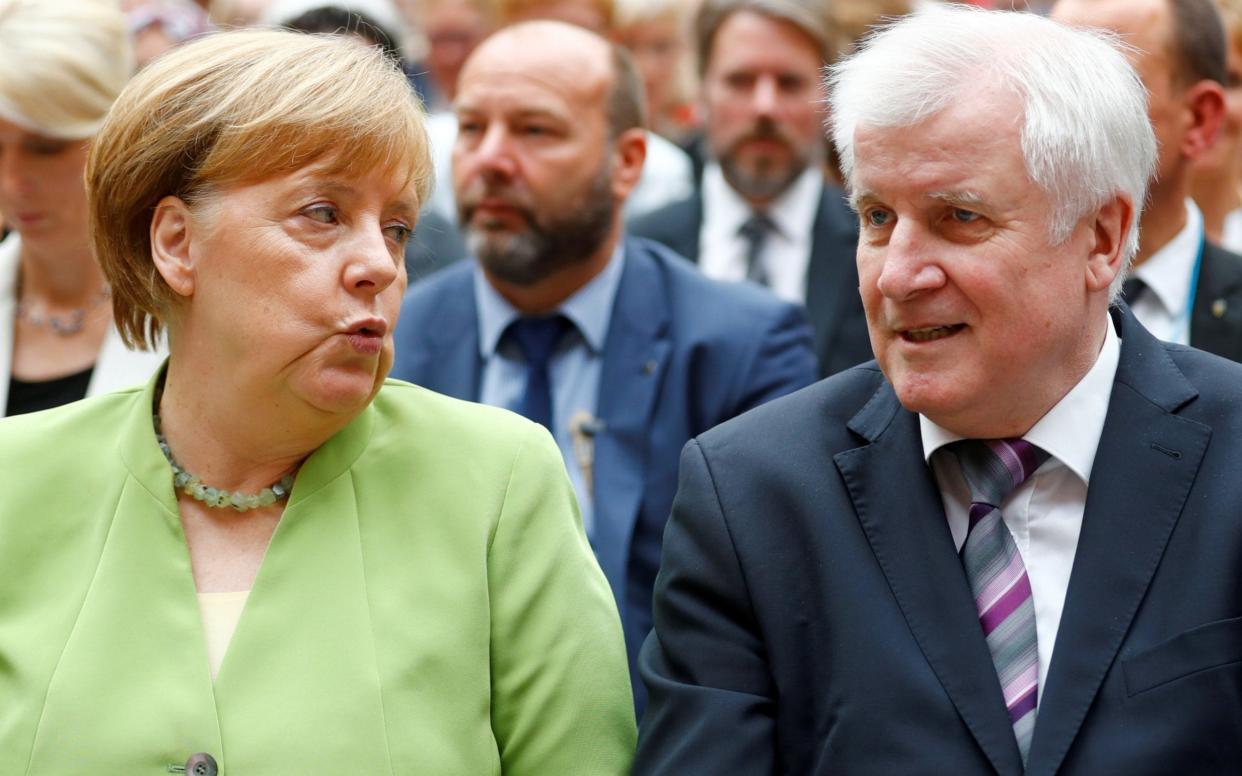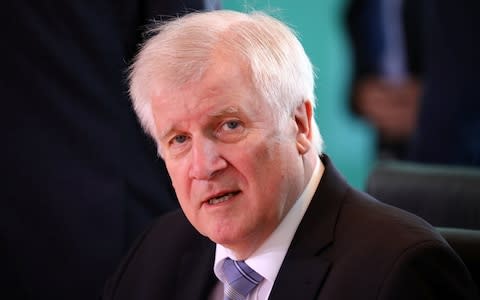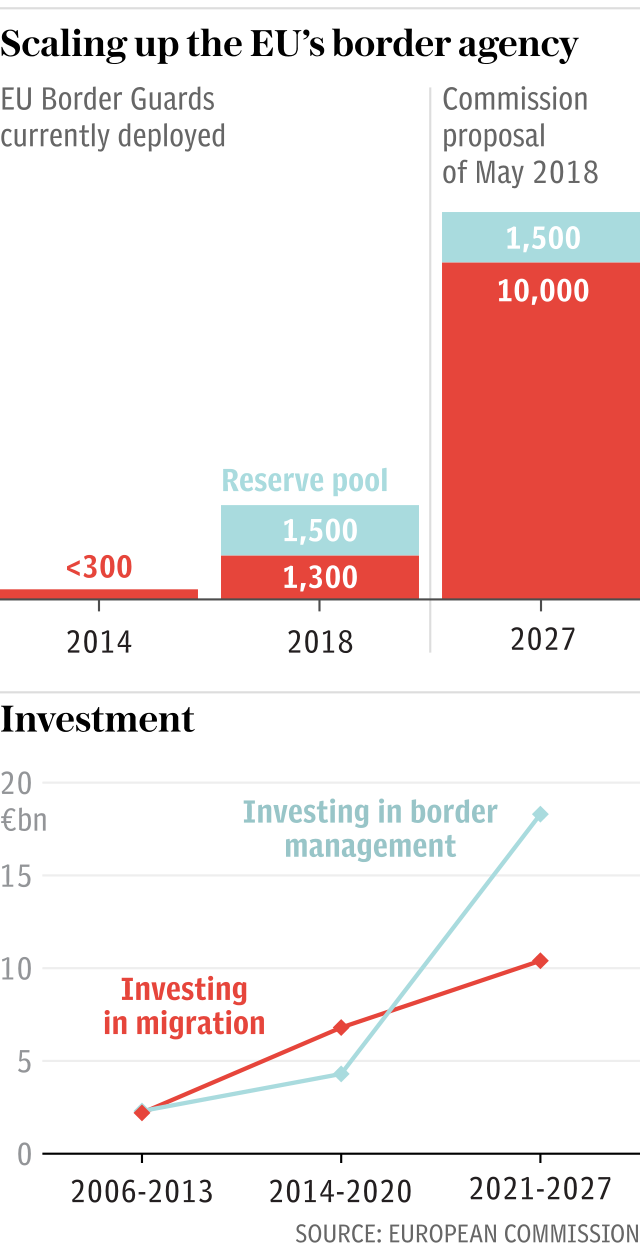Merkel moves to placate coalition partners in crucial migrant meeting

Angela Merkel will move to end the rebellion in her creaking coalition government on Sunday after announcing bilateral deals with 14 EU member states to accept the return of asylum seekers to the countries where they first arrived.
The agreements announced yesterday are aimed at placating her conservative Bavarian CSU coalition partners who have threatened to unilaterally shut Germany’s borders if Mrs Merkel does not adopt a more hardline migration policy.
Analysts said that the German chancellor’s future remained deeply uncertain despite her apparently winning enough concessions at last week’s European Council summit to placate her CSU partners.
Both Mrs Merkel’s Christian Democrat (CDU) party and the Bavarian CSU party will meet in Germany’s parliament on Sunday afternoon in a bid to broker a truce with the CSU and it’s chairman Horst Seehofer, who serves as her interior minister.
A CDU source said that there was a general expectation that both sides would “muddle through” but added warned against presuming that a deal would be done, given how unpredictable the CSU leadership was, and how “stubborn” Mrs Merkel could be.
Alexander Graf Lambsdorff of the opposition Free Democrats (FDP) said both the CDU and the CSU were now so erratic no-one should predict the outcome.

"I do not know anyone in Berlin who dares to make predictions about the behaviour of the CSU," he told Die Welt.
Already strains were showing yesterday after Mrs Merkel wrote an eight-page letter outlining her European Council deal, including the 14 bilateral agreements and a plan to have "anchor centres" to process migrants at Germany's borders.
The agreements included Hungary, Poland and the Czech Republic, which have all been harsh critics of Mrs Merkel's welcoming stance to migrants, as well as Belgium and France but notably did not include frontline states of Italy and Spain, or Germany’s neighbour Austria.
The letter caused Markus Söder, the CSU prime minister of Bavaria, to say that the EU had created space for unilateral action by Germany on its borders - an interpretation that was swiftly shot down by the CDU.
"Unilateral measures at the expense of other countries are not what is meant," Mrs Merkel's office said in a statement.
Bavaria bore the brunt of Mrs Merkel’s decision to open Germany’s borders in 2015, angering the CSU which is a sister-part of the CDU which does not field candidates in the southern German state.

The CSU went back into coalition with Mrs Merkel after a protracted six-month negotiation which ended last March with a three-way ‘grand coalition’ agreement that included the Social Democrat (SPD).
The CSU has taken a hard line on migration in a bid to boost support ahead of key October local elections where current polls show the party at risk of losing its outright majority because of the rise of the hard-right, anti-immigration Alternative for Germany (AfD).
Analysts warned that even if Mrs Merkel and Mr Seehofer could patch up their differences, the truce was likely to fail again and had done lasting damage, according to an editorial in Der Spiegel.
“Even if the two sister parties can come to an agreement they will not recover from this horrible theatre for a long time,” the paper wrote.

